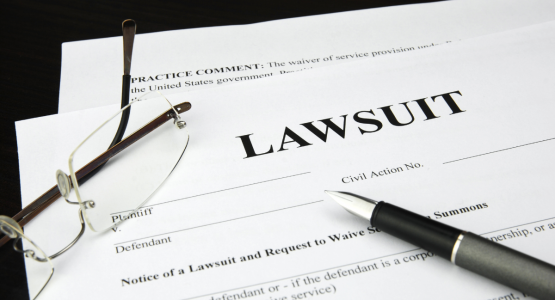The first substantive legal filings are coming forth in the COVID-related business income lawsuits in Ohio. As we previously reported, the Ohio Supreme Court accepted the certified question from the Northern District Court of Ohio (federal trial court) on whether business income coverage was applicable for a direct loss of property claim related to COVID.
In this case, Neuro purchased a 3-year commercial property policy from Cincinnati Insurance Company (CIC) and filed a business income claim after it ceased most of its operations on March 23 and resuming some on May 4. Neuro submitted a claim that was denied by the company because it did not involve “direct, physical loss to property” in accordance with the policy.
In its 295-page merit brief, CIC empathized with Neuro and other businesses affected by the COVID interruptions but then immediately moved to position the legal issue as a contract question where the Court should apply the insurance policy meaning based on the principal of law. CIC cited two Ohio appellate court decisions that established the precedent “that in order to have direct physical loss or damage to property, there must be some tangible, physical alteration to the property or structural damage to it. Both cases hold that their policy language, substantially similar to that here, is clear and unambiguous as a matter of law.”
The company state that “the Coronavirus has been generally present in Ohio for over a year. It is spread from person to person. Viruses have been around for a long time. Construing the mere presence of a virus in society into a direct physical loss to property would mean that all property is always physically lost or damaged. There are many people, sick with viruses, walking around our communities. Concluding that their mere presence in the community is a direct physical loss to property would mean that all property is always physically lost or damaged, particularly during cold and flu season. Fundamentally, the virus does not physically, tangibly alter property.”
CIC asked the Court to “address the certified question by ruling that in order to have direct physical loss or damage to property, there must be physical alteration to that property. The mere presence of a virus in the community generally, at a premises or on surfaces does not satisfy that requirement. Government orders regulating businesses and limiting their income do not satisfy that requirement. Because Neuro alleges no physical alteration to its property, there was no direct physical loss or damage to its property and thus coverage was not triggered. Any other result would inevitably lead to manifestly absurd results.”
Regarding, the government regulations that triggered the shutdown of many businesses, CIC argued, “if government orders regulating businesses are distorted to qualify as direct physical loss or damage to property, then all property is physically lost or damaged at all times because businesses are subject to a wide range of regulations affecting their use of property and operations.
“Government regulation of business is ubiquitous. Construing financial loss caused by compliance with government regulation as a direct physical loss to property would mean that all businesses are always suffering direct physical loss. Businesses are regulated by noise ordinances, age restrictions, capacity limits, and much more. Government regulations limit services and sales to customers and deprive businesses of potential revenue. Interpreting a property insurance policy to cover these financial losses would create an absurd result in contravention of Ohio law.”
The Neuro-Communication Services vs. Cincinnati Insurance Company case is the first case in Ohio to reach the court of last resort on a substantive legal issue. The filing gives us insight into the defense that Cincinnati Insurance Company and other insurance carriers are likely to levy in their defense of denying COVID business income claims.
There have been approximately 1,500 cases filed across the country on this issue with an overwhelming majority of cases still pending in the court system awaiting adjudication. For the claims that have been resolved, most are being dismissed or resolved in favor of the insurance carriers that have denied coverage. OIA will continue to report updates on this case and any others affecting your clients and insurance companies.
If you have any questions or concerns, please contact Jeff Smith at jeff@ohioinsuranceagents.com.


